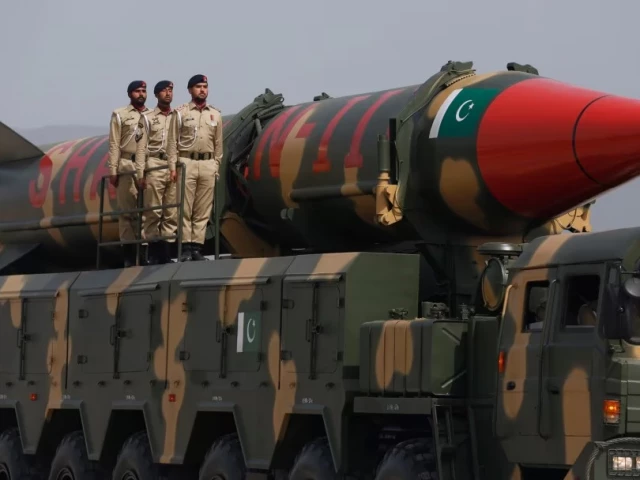US sanctions Pakistani firms over national security concerns
List includes seven firms facing restrictions for contributions to Pakistan’s ballistic missile program.

The United States Bureau of Industry and Security (BIS) has added over a dozen Pakistani firms to its Entity List for their involvement in "unsafeguarded" nuclear activities, with an additional seven firms facing restrictions for their contributions to Pakistan’s ballistic missile program.
The move follows recent changes to the US Export Administration Regulations (EAR) and affects 70 entities from China, Pakistan, Iran, South Africa, and the UAE, as reported on the US Federal Register website.
The listed firms are considered to pose a significant risk to US national security or foreign policy interests.
Among the Pakistani companies added to the list for their nuclear-related activities are Britlite Engineering, Indentech International, IntraLink Incorporated, Proc-Master, Rehman Engineering and Services, and others.
The US government stated that these entities are "acting contrary to the national security or foreign policy interests of the United States."
The new restrictions will limit their access to US technology, requiring additional licenses for exports, re-exports, and in-country transfers involving these companies.
Additionally, seven firms have been sanctioned for their alleged role in Pakistan's ballistic missile program, including Allied Business Concerns, Global Traders, and Linkers Automation. These companies are primarily based in Islamabad, Karachi, Lahore, Faisalabad, and Wah Cantonment, although they were not immediately available for comment.
In response to the sanctions, Pakistan’s Foreign Ministry criticized the move, calling it "unfair" and politically motivated. Spokesperson Shafqat Ali Khan argued that these actions were counterproductive to global export control objectives and obstructed the country’s access to technology needed for socio-economic development.
The latest sanctions come as US-Pakistan relations remain strained following the US withdrawal from Afghanistan in August 2021. The tensions were further escalated last week when the US imposed a 29% reciprocal tariff on imports from Pakistan. Analysts warn that this could impact Pakistan’s $17 billion textiles industry.
Pakistan’s foreign ministry has condemned the sanctions and reiterated that the country’s strategic capabilities are vital for defending its sovereignty and regional peace. The government is planning to send a high-level delegation to Washington to discuss the new tariffs, which Pakistan hopes could be leveraged into an opportunity for mutual benefit.
The US government had previously imposed sanctions on Pakistan’s National Development Complex and several Karachi-based commercial entities in December 2023. These actions have been similarly criticized by Pakistan, which insists they are based on unwarranted suspicion rather than evidence.





















COMMENTS
Comments are moderated and generally will be posted if they are on-topic and not abusive.
For more information, please see our Comments FAQ